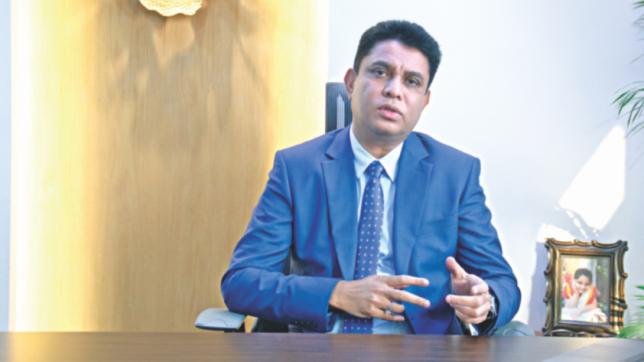Mechanisation key to higher farm yield

Bangladesh lags far behind its peers in the use of farm machinery despite having huge potential as agriculture remains an important sector of the country's economy, said Subrata Ranjan Das, executive director of ACI Motors.
The South Asian nation has mechanised the cultivation process to a great extent but is yet to do much in harvesting and transplanting, he said.
“Mechanisation at the time of harvesting and transplanting is very important for getting higher yields,” Das told The Daily Star in an interview.
Financing is a big problem for agricultural mechanisation in Bangladesh although the country has highly fertile land, he said.
For instance, Bangladesh's crop intensity is 190 (100 denoting one crop in a year) while it is 141 in India and 105 in South Korea, he said.
Das said ACI Motors has the ability to provide farmers with all kinds of farming mechanisation solutions, including tractors, power tillers, reapers, mini combine harvesters and rice transplanters.
Since launching in 2007, the company has not only sold machines upon cash payment but also on credit among rental service providers, which will amount to around Tk 1,500 crore, he said.
Apart from this, the company also allows its dealers to sell the machinery on credit.
“We have so far got back some 70 percent of the amount. There are some cases of payments being delayed but none for too long. We did not have to write-off any amount on their principal,” said Das.
“So our experience is very good but we also have financing limitations,” he said, adding that the government could come up with different financing solutions.
“Farmers have to conduct transplants on time otherwise crops will not grow well. They need to go for harvests on time as well to avoid crop loss,” he added. If the harvester is used, crop loss comes down within 2 percent whereas it is more than 10 percent in case of traditional harvesting, he said.
Machines for transplanting and harvesting helps to cut labour cost and save time but a lot of investment is required to purchase those, which is a drawback consider the fact that those have no multipurpose use.
There are very few formal financing facilities for agricultural mechanisation in Bangladesh, he said, adding that the banks were giving out agricultural loans every year but those were not being used for mechanisation.
“There is no monitoring in Bangladesh on where the agricultural loans are going. In India, the Reserve Bank of India conducts monitoring on a quarterly basis,” he said.
Palli Karma-Sahayak Foundation, SME Foundation and banks' SME loans can be provided to those who purchase agricultural machines to rent those out, he said. The government can dedicate some branches of banks to provide agricultural mechanisation loans, he said.
He proposed that a government-to-government deal be signed with Japan for a line of credit to promote agricultural mechanisation.
Mechanisation is very important when it comes to attracting next generation farmers who are educated and seeking profits, he said, adding, “Profitability in farming is a big question now.”
Subsidies will not be required if the government can ensure good prices to farmers for their agricultural produce, he said. The government can also go for forming a price commission, the official said.
Businesses involving agricultural mechanisation are not that popular in Bangladesh, he said.
People in the business are not even considered for the commercially important person status but they deserve it, Das said.
Some of the big local companies, including Rahimafrooz, Gazi and Walton, had earlier opened agri-mechanisation wings in their business but abandoned those as it is difficult to generate profits, he said.
